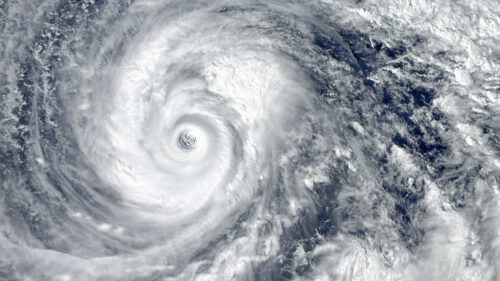June marks the start of hurricane season, and every year hurricanes cause billions of dollars in damage and claim countless lives. With the six-month long hurricane season comes severe winds, rain and storm surge. This combination of devasting weather can spell destruction for many homeowners all across the Eastern Seaboard.
In fact, many homeowners are still piecing their lives back together after the devastating effects of Hurricane Ian last year. The physical and economic damage caused by Hurricane Ian is estimated to have caused a total of $112.9 billion, placing the hurricane as one of the top five costliest in U.S. history. For Florida specifically, it’s estimated that Hurricane Ian will break records for the largest hurricane-related loss event to date.
With the impact of storm like Hurricane Ian still top of mind, many homeowners across the eastern U.S. need to brace their homes – and their finances – for the impact that comes with the unpredictable nature of hurricanes.
Preseason Predictions May Look Less Active, But Mother Nature Can Be Fickle
As we head into the season, experts are still estimating what 2023 will have in store for home homeowners. Recent reports point to a season with less activity expected to hit areas surrounding the Atlantic Ocean and Gulf of Mexico.
The folks at The Colorado State University Tropical Meteorology Project predict 13 named storms, which is a tropical cyclone with sustained winds of at least 39 mph, including six hurricanes for 2023. Two of those six hurricanes are estimated to become major hurricanes for the season, a designation reserved for hurricanes designated Category 3 or higher (sustained winds of 111 mph minimum) according to the Saffir-Simpson Hurricane Scale.
Just because this year is labeled a less active year doesn’t mean that it can’t have devastating implications for people who live in hurricane-prone areas. Take 2022 as an example, it was a “normal” season when looking at activity with 14 total storms; however, Hurricanes Ian and Nicole Lisa combined for upwards of $77 billion in estimated damages in the U.S. alone.
Lessons like that remind us that even though forecasts look like there won’t be many hurricanes heading our way, their effects can still be extremely costly.
Ways To Prepare Yourself and Your Home
To thwart the effects of hurricane, there are valuable steps homeowners can take to protect themselves from the financial and physical impacts of Mother Nature.
- Stay informed: Like other severe weather events, it’s essential to keep your eyes on the news and weather forecasts to stay informed about hurricanes heading your direction. Have a disaster plan in place and be ready to evacuate if necessary.
- Secure your home: Strong winds, heavy rain, and storm surge from hurricanes can cause significant damage to your home. Consider reinforcing your roof, windows, and doors with hurricane shutters or other protective measures.
- Elevate your home: Ensure that the lowest floor is above the base flood elevation level for your area. According to FEMA, this is one of the most effective ways to limit the effects of storm surge.
- Clear your yard: Remove any debris from your yard that could become loose and potentially dangerous if they’re caught up in the high winds.
- Stock up on supplies: Make sure to have a supply kit ready with essentials like water (enough for one gallon per person per day for at least three days), non-perishable food, first aid supplies, and flashlights. It’s also a good idea to have a battery-powered radio on hand to stay updated in case there are any power outages.
- Invest in disaster insurance: Think about adding a Recoop disaster insurance policy to your home or renters insurance for access to quick, flexible recovery cash that can be used for repairs, to cover the cost of temporary housing and more in the event of a hurricane.
While it’s impossible to predict what this year’s hurricane season has in store – along with the exact path and severity of a hurricane – taking these steps can help you be better prepared in the event of a disaster.

